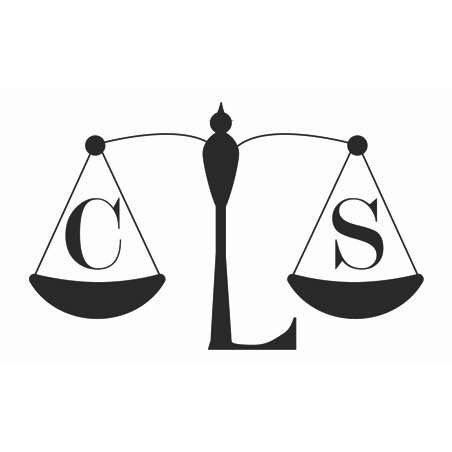Best Sanctions & Export Controls Lawyers in Yemen
Share your needs with us, get contacted by law firms.
Free. Takes 2 min.
Or refine your search by selecting a city:
List of the best lawyers in Yemen
About Sanctions & Export Controls Law in Yemen
Sanctions and export controls are special legal measures used to regulate the transfer of goods, technology, and financial services across Yemen’s borders. In Yemen, these laws are influenced by both domestic regulations and international obligations, especially given the country's complex political and security situation. Sanctions may restrict dealings with specific individuals, organizations, or countries, while export controls place limits on the kinds of goods and technologies that can be exported or imported. The aim is to prevent activities such as the proliferation of weapons, financing terrorism, or violating international law.
Why You May Need a Lawyer
Legal expertise in sanctions and export controls is essential due to the complicated and frequently changing legal environment. People and businesses may need a lawyer in many situations, such as:
- Trading or shipping goods across borders, particularly with complex conflict-related restrictions
- Receiving or sending funds to or from countries or individuals under sanctions
- Managing dual-use goods (items that have both civilian and military applications)
- Facing accusations or investigations of sanctions violations
- Engaging in business with entities that could be or are listed on sanctions registers
- Complying with updates to Yemeni, United Nations, or other international sanction lists
- Understanding due diligence requirements
A lawyer helps ensure the activities remain within legal boundaries, assists with licensing and compliance procedures, and offers defense if enforcement action is taken.
Local Laws Overview
Yemen’s legal framework for sanctions and export controls draws on national legislation, presidential decrees, and Yemen's obligations under United Nations Security Council (UNSC) resolutions. Some key aspects include:
- The Central Bank of Yemen and relevant ministries oversee the enforcement of sanctions, especially for financial transactions
- International sanctions, particularly those imposed by the UN or Gulf Cooperation Council, must be observed
- Export of weapons, dual-use goods, advanced technologies, and certain chemicals is tightly controlled
- Customs and border authorities have broad powers to inspect and detain prohibited or restricted items
- Penalties for violations can include severe fines, confiscation of goods, and criminal prosecution
- Sanctions lists can impact businesses, charities, and even individuals engaged in cross-border activities
- Special licenses may be required for certain exports or transactions, including humanitarian shipments
Because the legal landscape is fluid and influenced by the country’s security context, compliance requires continuous monitoring.
Frequently Asked Questions
What are sanctions and export controls?
Sanctions restrict certain activities with specific countries, organizations, or individuals. Export controls regulate the transfer of designated items, technology, or services outside Yemen.
Who enforces sanctions and export controls in Yemen?
Multiple government bodies enforce them, including the Central Bank of Yemen, the Ministry of Industry and Trade, customs authorities, and relevant security agencies.
How do I know if my business partner is on a sanctions list?
You should regularly check official UN, Gulf, and Yemeni sanctions lists. A lawyer can assist in conducting thorough due diligence.
Are humanitarian organizations subject to export controls?
Yes. Even humanitarian missions must comply with sanctions and may need licenses for specific transactions or goods.
What happens if I violate sanctions or export controls?
Violations can lead to severe penalties, including fines, confiscation of goods, frozen assets, and criminal charges.
Do sanctions laws in Yemen change frequently?
Yes. Due to the ongoing conflict and international involvement, sanctions and export control rules are updated regularly.
Can I apply for an exemption or license?
In certain cases, you can apply for exemption or special licenses, especially for humanitarian, medical, or dual-use items. A lawyer can help with the application process.
Are there restrictions on sending money abroad?
Yes. Financial transactions with countries or persons under sanctions are heavily restricted and sometimes prohibited.
What items are typically controlled for export?
Weapons, military equipment, dual-use goods, chemicals, and certain advanced technologies are strictly controlled.
How can I stay compliant with changing laws?
Maintain contact with legal professionals, subscribe to official government updates, and conduct regular compliance audits.
Additional Resources
If you need further information, consider reaching out to the following resources:
- The Central Bank of Yemen for financial sanctions guidance
- The Ministry of Industry and Trade for licensing and trade-related controls
- The Yemen Customs Authority for import and export regulations
- The United Nations Security Council Sanctions Committees for international sanction lists
- Local business chambers or legal associations for compliance support
Next Steps
If you believe sanctions or export controls may affect your activities, you should:
- Consult a Yemeni lawyer experienced in sanctions and export controls
- Gather detailed information about your intended transactions or business partners
- Review the latest government or international updates on restrictions
- Maintain updated documentation and records of all cross-border activities
- Reach out to relevant government bodies for clarification or to apply for licenses if needed
Taking early legal advice ensures your activities remain compliant and protects you from serious legal consequences.
Lawzana helps you find the best lawyers and law firms in Yemen through a curated and pre-screened list of qualified legal professionals. Our platform offers rankings and detailed profiles of attorneys and law firms, allowing you to compare based on practice areas, including Sanctions & Export Controls, experience, and client feedback.
Each profile includes a description of the firm's areas of practice, client reviews, team members and partners, year of establishment, spoken languages, office locations, contact information, social media presence, and any published articles or resources. Most firms on our platform speak English and are experienced in both local and international legal matters.
Get a quote from top-rated law firms in Yemen — quickly, securely, and without unnecessary hassle.
Disclaimer:
The information provided on this page is for general informational purposes only and does not constitute legal advice. While we strive to ensure the accuracy and relevance of the content, legal information may change over time, and interpretations of the law can vary. You should always consult with a qualified legal professional for advice specific to your situation.
We disclaim all liability for actions taken or not taken based on the content of this page. If you believe any information is incorrect or outdated, please contact us, and we will review and update it where appropriate.
Browse sanctions & export controls law firms by city in Yemen
Refine your search by selecting a city.









